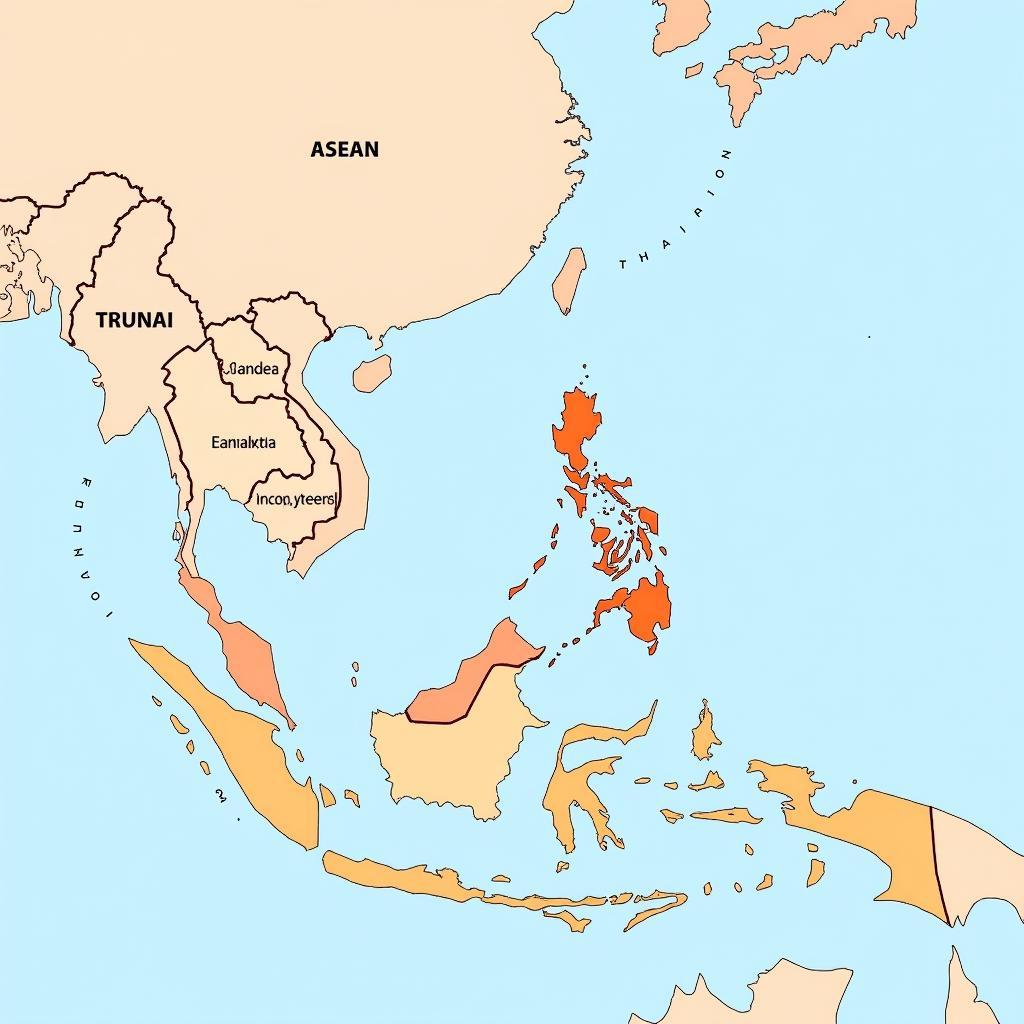The intersection of ASEAN management and school psychology presents a unique opportunity to enhance education systems throughout Southeast Asia. By integrating effective management practices with a deeper understanding of student well-being and learning, ASEAN nations can create supportive and stimulating educational environments. This article delves into the importance of merging these fields for the betterment of schools and students across the region.
Understanding the Synergies: Why ASEAN Management and School Psych Matter
Effective school management provides the structural foundation for a positive and productive learning environment. When combined with the insights of school psychology, which focuses on student behavior, learning processes, and mental health, schools are better equipped to address the diverse needs of their students.
 Students and teachers collaborating in an ASEAN school
Students and teachers collaborating in an ASEAN school
Here’s why this synergy is crucial:
- Improved Student Outcomes: A well-managed school with strong psychological support systems empowers students to thrive academically, socially, and emotionally.
- Reduced Behavioral Issues: By understanding the root causes of student behavior, educators can implement proactive strategies to create a positive school climate.
- Enhanced Teacher Effectiveness: School psychologists can provide teachers with professional development opportunities and resources to better support students with diverse learning needs.
- Culturally Responsive Practices: ASEAN’s cultural diversity necessitates an understanding of the unique cultural perspectives that influence learning and behavior within the region.
Key Areas of Intersection: Where Management and Psychology Converge
The collaboration between ASEAN management and school psychology is particularly impactful in several key areas:
1. Inclusive Education Practices
Creating schools that cater to all learners, regardless of their abilities or backgrounds, is paramount.
- Management’s Role: Ensuring resources are allocated equitably, infrastructure is accessible, and policies promote inclusion.
- School Psychology’s Role: Assessing individual student needs, developing individualized learning plans, and training teachers in differentiated instruction.
2. Mental Health and Well-being
Addressing the growing concern of mental health issues among students is essential.
- Management’s Role: Implementing school-wide programs promoting mental health awareness, establishing clear referral pathways for students in need, and fostering a supportive school climate.
- School Psychology’s Role: Providing individual and group counseling, crisis intervention, and collaborating with families to support student well-being.
 A school counselor meeting with a student in an ASEAN school
A school counselor meeting with a student in an ASEAN school
3. Positive School Climate and Culture
Creating a safe, respectful, and engaging learning environment is vital.
- Management’s Role: Establishing clear behavioral expectations, implementing effective communication channels, and fostering positive relationships between staff, students, and families.
- School Psychology’s Role: Conducting school climate surveys, developing anti-bullying programs, and promoting social-emotional learning initiatives.
A Vision for the Future: ASEAN Leadership in Education
By investing in the collaboration between ASEAN management and school psychology, the region can become a global leader in fostering holistic education systems. This requires:
- Increased Training and Professional Development: Providing educators with the knowledge and skills to integrate management and psychology principles.
- Policy Advocacy and Support: Enacting policies that prioritize mental health, inclusive practices, and the role of school psychologists.
- Research and Data-Driven Decision Making: Conducting contextually relevant research within ASEAN schools to inform best practices.
Dr. Maya Kirana, a leading expert in Southeast Asian education, states, “When we invest in both the well-being of our students and the strength of our school systems, we unlock their true potential. ASEAN has a unique opportunity to lead the way in this crucial area.”
Conclusion: Investing in a Brighter Future
The synergy between ASEAN management and school psychology holds immense promise for transforming education within the region. By embracing a holistic approach that values both effective leadership and student well-being, ASEAN nations can create schools that empower every student to succeed.
FAQs
1. What qualifications do school psychologists need in ASEAN countries?
School psychology requirements vary across ASEAN nations. Generally, a master’s degree in school psychology or a related field is required, along with licensure or certification.
2. How can I advocate for increased mental health support in my child’s school?
Start by talking to your child’s teacher or school counselor. You can also connect with other parents and advocate for change at school board meetings.
3. What are some examples of inclusive education practices?
Examples include differentiated instruction, providing assistive technology, and creating a welcoming and accessible environment for all students.
4. Where can I find more resources about ASEAN education initiatives?
The ASE NBME website provides valuable information on education initiatives in Southeast Asia.
For further assistance and support in navigating the intersection of ASEAN management and school psychology, please reach out to our team at:
- Phone: 0369020373
- Email: [email protected]
- Address: Thôn Ngọc Liễn, Hiệp Hòa, Bắc Giang, Việt Nam
We offer 24/7 support and are dedicated to helping you find the resources you need.


